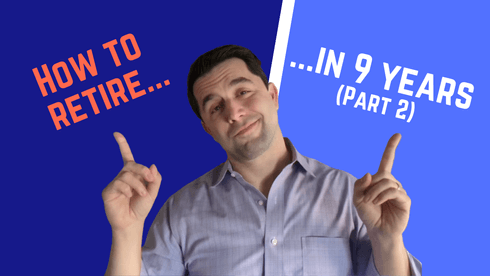The sidewalk was bustling as we sat outside Cultivar’s parklet on Chestnut Street.
It was 8pm on Saturday. Date night.
Nicole and I were enjoying our conversation when the waiter brought us the menus and wine list.
Since it had been a super productive week, we decided to splurge and get a bottle of wine instead of just
a glass.
And as it’s summer in San Francisco, it was a bit chilly so I was in the mood for a red cabernet to keep us
warm.
I found the perfect one for $60.
But as I always do, then I comparison shopped and I found a Pinot Noir for $33.
After a short internal dialogue, I decided nearly double the price for EXACTLY what I wanted wasn’t worth
it. And I voted heavily and persuasively for my second choice – the Pinot.
Nicole agreed and we enjoyed a delicious Pinot Noir with our meal.
Towards the end of the meal, Nicole got up to use the restroom and I immediately pulled out my phone…
pulled up my Schwab app…
and transferred $27 from our checking to our brokerage account…
where it would then be invested first thing Monday morning. And just like those 3 pennies I found in the
street, that $27 will make me more money than I’ll ever need at some point.
Not because of the actual $27, but because of the mindset it represents and the resulting dopamine
released when I hit “submit” on the transfer.
By “keeping strict accounts” as Jim Rohn says, you uncover money that your wasting (like that unused
Audible subscription).
And when you’re focused on stopping the waste, you change how you view your money and how you use
it.
Financial success (or failure) is determined by good (or bad) financial habits.
And knowing where you’re spending your money and where you’re wasting is it one of the most
impactful financial habits you can acquire.
If you really want to retire in 9 years, then you MUST adopt as many good financial habits that you can
find.

